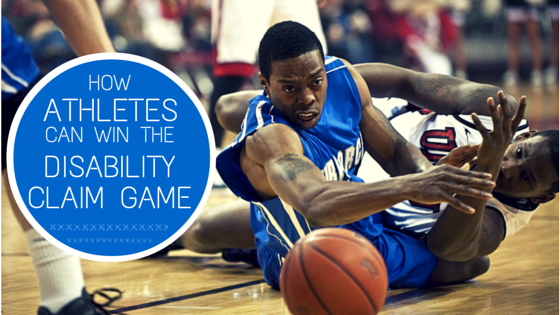HOW ATHLETES CAN WIN THE DISABILITY CLAIM GAME

How much could an athlete stand to lose because of an injury? Without a bulletproof permanent total disability or loss of value insurance policy, the answer could be millions.
Former USC football players Marqise Lee and Morgan Breslin made recent headlines after filing suit against Lloyd’s of London for denial of their multimillion-dollar loss of value insurance claims. Lloyd’s allegedly denied these claims because the athletes submitted misleading or misrepresented pertinent health information.
This move by Lloyd’s is a tried and true insurance claim denial strategy. It will be a few years before we see a decision in these lawsuits, but those decisions shouldn’t have any bearing on how athletes evaluate loss of value insurance today or in the future.
We often see sloppy loss of value and career-ending permanent disability policy applications done by a broker, financial planner or agent-or by the college player, the college or university-and inevitably someone misunderstands, mishears or misinterprets what is being asked for.
Athletes who either have or are considering loss of value insurance should be sure their own claims are thorough, complete and expert-approved.
Here’s what athletes can expect to see as the primary reason for a denied permanent total disability, loss of value or career-ending disability claim, and how to avoid fatal application or claim mistakes.
1. The athlete, handler, college or broker misrepresented health, financial or medical information when applying for the policy.
Carriers have a field day when they find omitted or partially submitted misinformation on an application that later leads to a claim. The insurer usually calls fraud and refunds the premium with interest but doesn’t pay the seven figures of benefits.
Solution: Get a college/pro athlete disability expert familiar with these applications, claim forms and policy language to bulletproof the purchase and get the claim paid promptly.
2. The player was treated or should have gotten treatment, consultation or medical care/advice, or took medication during the pre-existing condition period.
Most athletes, colleges or their handlers fall into this trap because most players see a trainer, chiropractor, or physical therapist periodically as part of routine maintenance. Insurers often overstate these training aids as medical care, advice and treatment to eliminate any chance to collect disability benefits.
Solution: Get a careful and thorough evaluation of all care, maintenance or treatment from anyone during the pre-existing period by a disability expert.
3. The player had a lackluster combine or pro-day.
Insurers often claim that various teams’ needs that didn’t match what the player brought to the draft, and this-not a minor strain/sprain type of injury or sickness-caused their draft stock to slip.
Solution: Find an expert disability insurance attorney with a record of successfully representing elite and pro athletes as well as experience in facilitating policy purchase through the NCAA and the private marketplace. Carriers will often bend on onerous or ambiguous language if persuaded properly and professionally.
The bottom line
Pro athletes in their free agency year, professional teams wanting to insure a marquee player’s salary, athletes approaching the draft, and their colleges and universities need help with applications, policy language and claim presentation when buying permanent total disability or loss of value policies or career-ending coverage.
If you think these lawsuits mean loss of value insurance is useless, consider this: Denied insurance claims are as likely as injuries in sports. It happens. That’s no reason to sit out of the game altogether or get crushed because you couldn’t pick the right disability lawyer to help you purchase the right policy, complete a thorough application and present a claim that gets paid on time.


